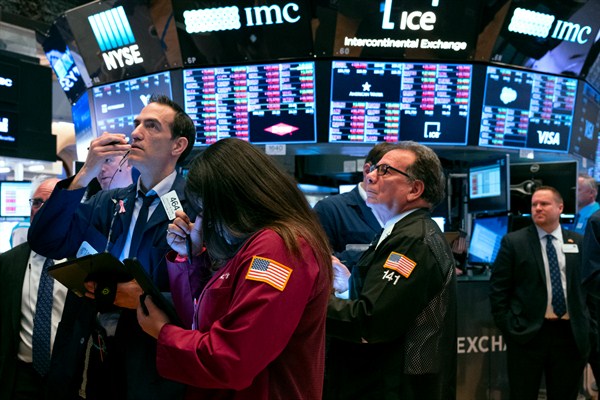The coronavirus pandemic is, first and foremost, a global health emergency. But it is also having major economic effects—sinking stock markets and threatening to send the global economy into recession.
The economic shocks outside China, where the outbreak originated, were relatively modest at first, as the authorities there—after initially trying to suppress any news of an epidemic—finally imposed strict containment measures that shut down major parts of the economy and disrupted supply chains globally. But those shocks grew rapidly as the virus spread around the world and countries took drastic steps to try and contain it. In the midst of this crisis, international trade in goods and services has been both a vector for spreading COVID-19—cruises and other international travel in particular—and a casualty of that spread. The severe measures being taken now to shut schools and other gathering places will hopefully slow the rate of infection, but the economic cost is going to be high.
Because the peak of the outbreak in China overlapped with the Lunar New Year, its effects were both more and less severe than they might have been. For restaurants and other small firms that rely heavily on activities related to the holiday, the consequences of the quarantine measures were particularly severe. Major manufacturing and industrial sectors usually close down for a period around the Lunar New Year to allow their large migrant workforce to return home for the holiday. So the disruption to trade and supply chains was perhaps a bit less than it might have been at other times.

